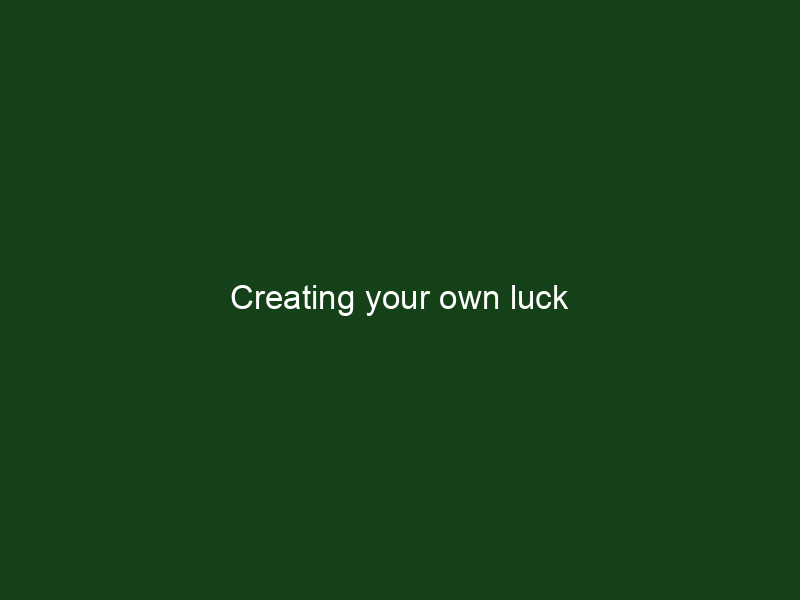Occasionally our students report feeling unlucky or depressed and trying to change their life by learning a new skillset. While superlearning is probably not the right skillset (I am planning to develop something more focused next year), we do want to help these students. Here I try to address 3 common issues, which all of us may encounter at some point.
The first thing to address would probably be stress, fatigue or other feeling closely connected with being burnt out. Many of our students are extremely productive, in fact they are so productive they do not have a minute to spare. This is a bad thing. If you want to create your own luck you need to leave time and space for unplanned activities, new sensations, meeting new people, serendipity discoveries. If you are so busy you cannot even find time and energy to rest, how will you find time and energy to risk to explore new things? New things are unknown, most of them will be a waste of time, only few of them will be worthwhile, and it is very hard to distinguish good from bad before you invest your time, your energy, your money….
The second issue to address is the general openness to new challenges. This article shows several ways in which we sabotage our creativity at work: do not take breaks, avoid side projects, try to be like others, do not take risks. Openness to risks is a character trait. Some people are generally more open than others. Not taking chances is a sure way to fail in the long run, so some calculated risks need to be taken. You do not have to step out of comfort zone too often: that is a sure way to get stressed and burnt out. Occasionally it is better to plan an hour a day (or more) for on-job training: reading articles, learning new things, trying to step out of comfort zone, socializing with others, playing with side projects. If properly planned, this activity will get full support of the people around you, and your personal risks will be minimized.
The third issue that affects luck is our general happiness. People instinctively do not like to have business with unhappy people. Unhappy people have a negative influence on the motivation of other people around, so have much lower chances being promoted and are more likely to leave. Trying to emulate happiness creates distrust, which is also very damaging. So is better to be happy. To some extent we are born with some level of happiness, however we can improve it. Meditation and/or sport will likely improve your happiness by 10%. Here are some other activities that may help:
- Spending time with people you care about. Not only will you feel better, you will learn a lot. It takes time for people to open…. Cultivating long-term relationships helps.
- Committing to meaningful goals. If the work you do may change the world, if you feel empowered by your role, if your mission makes the perfect sense, you will be much more likely to be happy even on the most demanding jobs.
- Buy experiences, not stuff. Preferably new and different experiences. If you can – travel, otherwise go to cultural events, try new healthy food, try to acquire fun and healthy new hobbies and habits. If you buy stuff, treat it like an entry ticket to new experiences.
- Invest, but do not speculate. Financial security is a strong indicator of personal happiness. If you invest defensively (like Warren Buffet) in a balanced buy-and-hold portfolio, you will probably be happier.
So if you want to create your own luck: generate spare time, step out of comfort zone, do things that make you happy. This is a very simple recipe. Try it!

Get 4 Free Sample Chapters of the Key To Study Book
Get access to advanced training, and a selection of free apps to train your reading speed and visual memory

